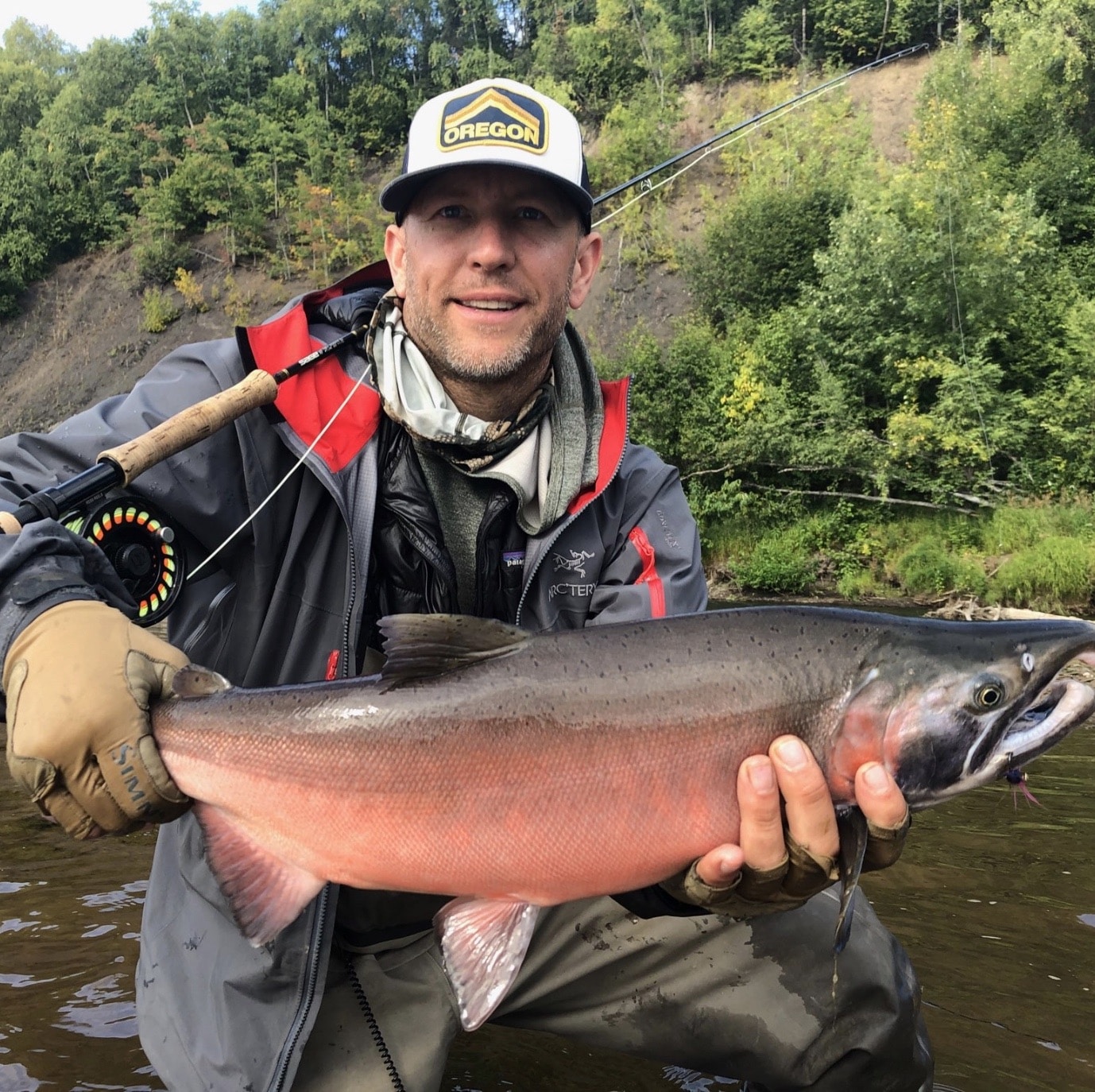The Ukraine war has accelerated trends that were first started by the Covid-19 pandemic. Does this mean we are now in a period of deglobalization? If so, the impact on investors will be far reaching as the framework for global capitalism over past thirty years unravels. Anthony Milewski from The Oregon Group explains where the global economy is currently headed and what investors should be thinking about.
“Deglobalization is going to be a balkanization of the world, with Western, Russian and Chinese spheres of influence. And countries are going to bring certain industries into their sphere of influence”
Anthony Milewski, The Oregon Group.
Which investment positions are at risk and where is the upside in this historic geopolitical shift. Thinking about the macro, so you can invest in the micro. Listen now to find out more about deglobalization.
Subscribe for Investment Insights. Stay Ahead.
Investment market and industry insights delivered to you in real-time.
Transcription
Presenter / 0:03
Welcome to the Oregon group podcast on the table today is deglobalization. You know, this is a theme that started getting some airtime and a little ways into the pandemic, due to the political, economic and social trends that we as a world society were starting to see. But as a result of the Ukraine conflict, deglobalization is fast becoming a major trend that investors should be aware of. Want some proof of that? Look no further than the fact that it features as the main subject of BlackRocks March shareholder letter. So where to start with a subject of this size and complexity? Well, for that, I’m going to let our co-founder Anthony Milewski, take the lead. And for those of you who are new to Oregon Group and may not know Anthony, let me give him a quick intro. He built his early reputation as a successful fund manager in New York, he’s worked in Russia and Asia and Europe, and also in London. He’s founded and run public companies, he sits on the boards of several other successful companies. And he’s been an investor since his teenage years. And the macro story is where he lives and breathes. So Anthony, let’s get into it. Deglobalization, break it down for us.
Anthony Milewski / 1:05
Hi Dave, thanks. So you know, for the past 30 years, the overall framework for investing, and really thinking about almost anything in our lives, whether it’s the plastic widget, the toy, you bought your kid for Christmas, your car, whatever we wanted to talk about, we were talking about globalization, this idea that the plastic trim would be made in Mexico, the aluminum alloys in Europe, the microchips made in Taiwan, it would all come together to form a car that you would buy in Portland, Oregon. That was globalization. And it was a dream of, you know, putting production in the most efficient and least expensive places in the world in order to create products that were great, that worked well and that cost less. At the same time bringing parts of the world out of poverty, and really spreading economic wealth across the world. And, and that’s been the narrative that’s kind of gone into everything that we’ve thought about, everything that we’ve touched over 30 years. And what we’ve seen in the pandemic, and now it’s been really accelerated with the war in Ukraine, is the exact opposite. We are now in a world that is thinking about deglobalization. In other words, unwinding the interlinking nature of our economies and our lives that we’ve pulled together over the last 30 years. And so this is going to be a very complex discussion. But at its root deglobalization is going to be a balkanization of the world with the West sphere of influence, the Russian sphere of influence, and the Chinese sphere of influence. And countries are going to try to bring certain industries into their spheres of influence or their part of the world. And what I mean by that is, we’re going to see Canada and Europe and America want to make medicine that they need, instead of having to rely on Africa, potentially, or Russia in the past through a lot of medical testing in Russia. You’re gonna see China no longer want to rely on microchips from the West, we saw that one of the sanctions that was imposed on Russia was around microchips. So you’re gonna see, you know, all this technological infrastructure is going to need to be built out of these balkanized spheres. And the same for Russia. So we’re now entering a world where there are going to be teams, and these teams will probably be divided into those three spheres, and people are going to try to push industries back into their sphere of influence for their home markets. And so this is a dramatic change, it’s likely to really be the story for the next 10 or 20 years.
Presenter / 3:30
So you know, you mentioned a few sectors there. What are some of the other major components that investors should be thinking about you? For instance, what is it going to mean for commodities?
Anthony Milewski / 3:40
Interestingly, you kind of have just picked the most challenging one. So at the end of the day, Intel can build a microchip factory in Ohio, I think they just announced one in Oklahoma, Ohio, I can’t remember. The same can be true for Nvidia. Ford can build cars in Canada. I mean, all that can happen with money. What can’t happen is a nickel mine sitting in Africa cannot be magically transported to the US or to England or wherever. And so commodities are going to be the pinch point, I think in this entire new world we’re gonna live in, because a lot of these commodities are sitting in South America, they’re sitting in Africa, or by the way, they’re sitting in Russia, and what is that going to mean for commodity flows? What is it going to mean for financing projects? You know, over the last decade, when you look at nickel and copper and gold projects, you know, typically what you see are or is the cost curve, and projects get financed on the cost curve with a risk adjusted kind of return for country. But as long as you weren’t in the Congo, you know, that wasn’t so relevant. But today, and going forward, you might see that paradigm completely shift and so a nickel mine in Canada that would not have been built 18 months ago. Maybe it gets built now because the Canadian government subsidizes it or the Australian government subsidizes it. And so I think that’s one of the things to look out for here is that natural resources they are are where they are, and a lot of them are going to probably fall into Africa and some of these places where it’s going to be challenging for the West to really have an advantage, especially if we take, say, the battery metals race. What we’ve seen over the last three or four years is the Chinese government has subsidized the cost of capital and gone out and finance projects globally, they’ve done this in a transparent, straightforward way. So there’s nothing wrong with the way that they’ve done it. But they have really built a dominant position in, say, lithium and some of these other commodities. And if you’re America, you have to rethink, do you want to have an electric vehicle industry? And if you do, how are you going to insure those commodities? And it might mean that the way to insure them is the US government starts investing in mining. You know, I don’t know. But I think in this new balkanization, one of the things to watch and think about are going to be commodities.
Presenter / 5:50
So commodities are going to be very interesting. And I imagine the same is going to be true for energy. One could imagine maybe more of these battery metals being labeled by governments as strategic metals and being treated accordingly. But, you know, if you’re an investor trying to get positioned, who’s going to benefit? Where should you be thinking about putting some money?
Anthony Milewski / 6:07
Yeah, I think it depends on your time horizon. So if you’re talking about, you know, the next 12 months, you know, frankly, you just need to have a view on a particular commodity, and then go buy a company that has an asset that is relevant, you know, if you want to own copper, go buy first quantum right, you know, that that’s going to be relevant for the next 12 months. But if you have a longer time horizon, you know, five years, six years, what might ultimately happen is that deposits in the US and Canada, let’s focus on those two countries, that would not have historically been built, because maybe they were large, low grade deposits. Those types of assets, all of a sudden, might become much more interesting. So if you wanted to really speculate, going out on a limb, once with those types of deposits could be a worthwhile endeavor. But if your time horizon is short term, I think you you look at the commodities that you like, like a nickel or copper, and you just buy the big liquid names that are publicly traded. But if we’re kind of trying to think about what these changes mean, the balkanization of the world means longer term and what that opportunity might be or how it might present itself for commodity investors, I think the obvious one is thinking about deposits, which were maybe marginal because of the cost of produce historically. What if you looked at American copper producers in the West who are developers and the federal government waived all taxes. I mean, there’s no talk of that today, but maybe the states pay the taxes. So I think there are things that could be done there that might be done, if it really becomes dire, that all of a sudden present really interesting opportunities and some of these so that, you know, that’s higher risk. And I think for the investors, you have to think about where you’re sitting on that risk spectrum and how you want to allocate your capital.
Presenter / 7:41
So let’s come at it from the other side, who do you think is going to struggle? If you’re an investor, you’ve got your positions out there, where should you be getting out of?
Anthony Milewski / 7:49
I think that the risky positions are going to be those positions where there’s a lot of influence from the Russian balkanization of the Russian sphere of influence. You know, there are some interesting deposits for uranium in Kazakhstan, there are gold projects or copper projects in that part of the world. And there are a number of public companies with assets there, that has become much riskier. And in fact, some of those names are already untradable. And then I think you have to think about how are these projects gonna get funded? So are we going to be kind of at a place where the US government is willing to fund it, so long as the offtake goes to an American company? Well, that’s all fine and well, except for the last decade, you know, trading houses and Chinese companies have given interim financing to junior mining companies in Africa and South America and really across the world as a way of securing supply. So if that off take has been given away, historically, that would not have necessarily been a problem. But in this new world, is that a problem if the cost of capital for the US government isn’t an interest rate, but it’s an offtake. I think it’s really thinking about the geopolitical implications on the projects that you investing in. And another one is, if you’re looking at Africa, who has more influence in that particular country, is it America? Or is it China? Or is it Russia? Russia has influence to in Africa. Do we arrive at a moment where if your project is aligned with the US and Russia influences that country, maybe it doesn’t get funded. I mean, those are all questions we don’t have the answers to but, in so much as you have a long position, and you’re going to be sitting on it for years, I think you have to start to think about that, because clearly the paradigm has been dramatically shifted in the last even eight weeks. But certainly the last kind of three years, you know, it makes it so that these longer term bets are more risky. And as an investor, I think you really have to maybe even raise what your anticipated return is to get paid for that risk that you’re taking.
Presenter / 9:34
We’ve talked a little bit about the resource sector as an obvious area that investors should be paying attention to. Are there any other sectors that come to mind?
Anthony Milewski / 9:43
You know, at this point in the cycle, the positions I would get out of are the ones that you’re up on. If you know if you have a copper name and you’re up six times sell it, you never lose money selling a stock that you’re a big on. And, you know, everyone has a story about the one that that went up 10 times from where you sold it at, but they don’t tell you about the other 10 that went down below where they invested at. And so my advice is in the face of Fed rate hikes, pretty aggressive monetary policy now, a war that that is really translating into global shocks, if you’re up big on some of your positions, I would sell them.
Presenter / 10:18
Okay. So we’re not going to have a globalized economy, or at least not so globalized. You know, in the coming years, you know, we’re going to have this balkanization. You’ve mentioned timelines, maybe 10 to 20 years, you know, is it too early to predict the exact curve of change? What are your thoughts on the speed of which this is all going to happen?
Anthony Milewski / 10:37
Well, there’ll be different things that happen quick. And some things that happen longer, I mean, change around the US Dollar as the global currency that’s going to take 10 or 20 years to really change. So that’s a longer term, but the way that projects could finance in terms of like support from governments – that can happen overnight, I suspect that the big macro changes, they always take longer than you think around currencies, funding decisions. And you know, the market is efficient at pricing risk, those types of things will hit the market immediately. But more broadly for globalization, or deglobalization, when large companies are allocating their capital to new projects, we’re going to see a lot more consideration given to bringing those projects back home or closer to home. And I think that happens immediately. That has an impact on raw material costs, it has an impact on shipping or shipping as bulk commodities are shipped. So the price of everything is going to go up including commodities. And I think that’s effective immediately.
Presenter / 11:29
As you said, we’ve entered a period of big change and it is going to be hard to predict every step of the journey. But it’s also clear that we’ve entered a big period of risk but also a big period of opportunity. I think that brings us to the end of today’s episode and listeners if you’re interested in what we had to say make sure you connect with us on social and sign up for our email alerts.















